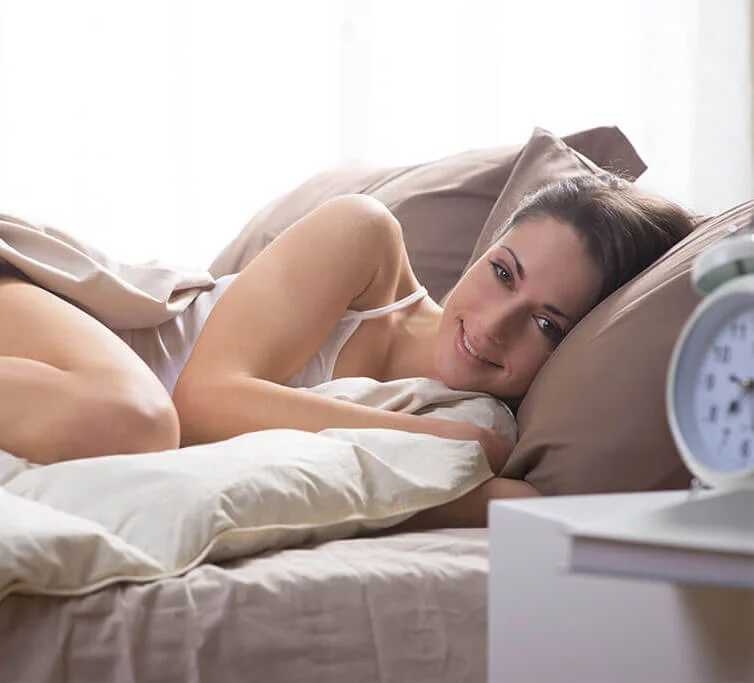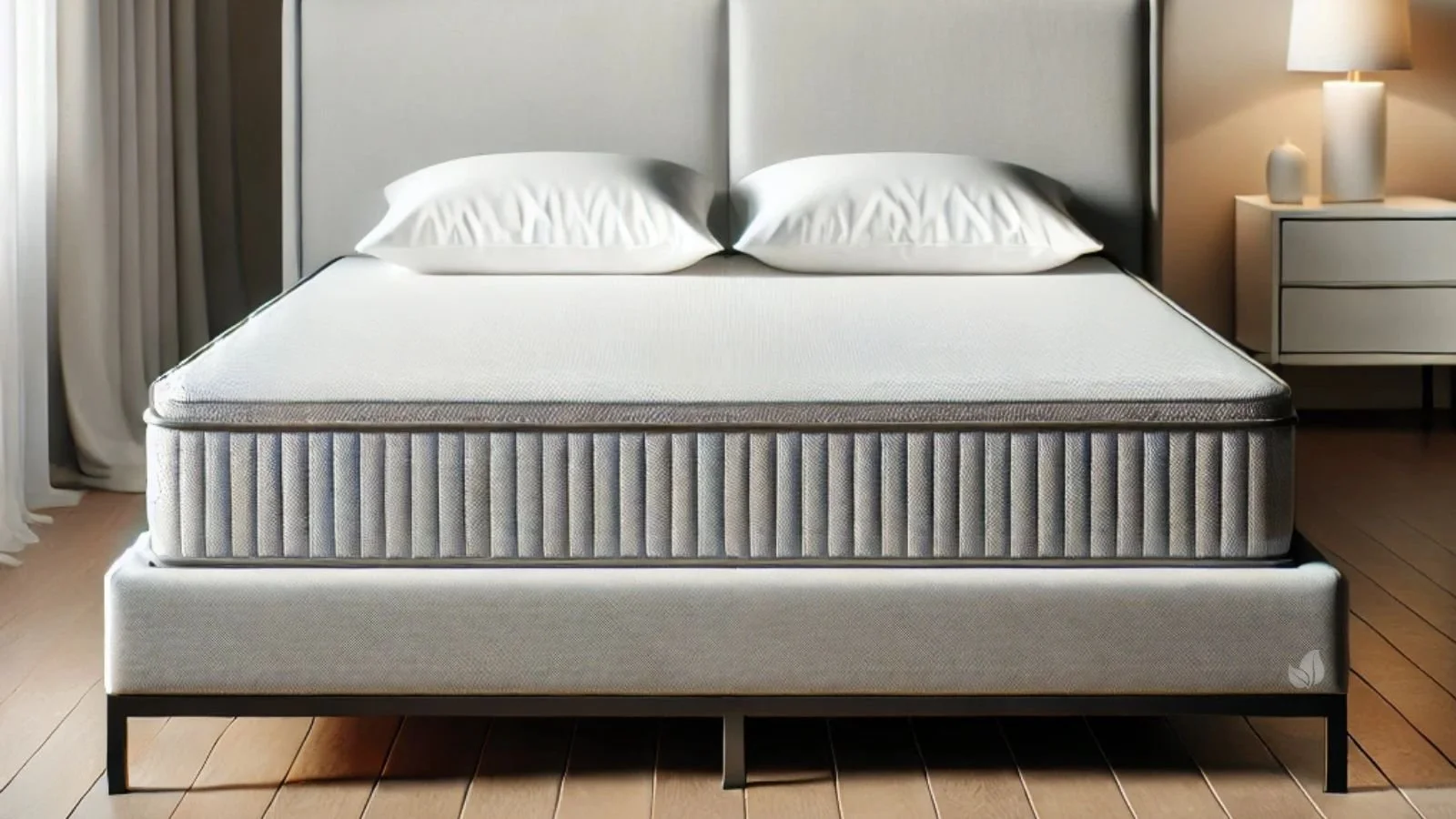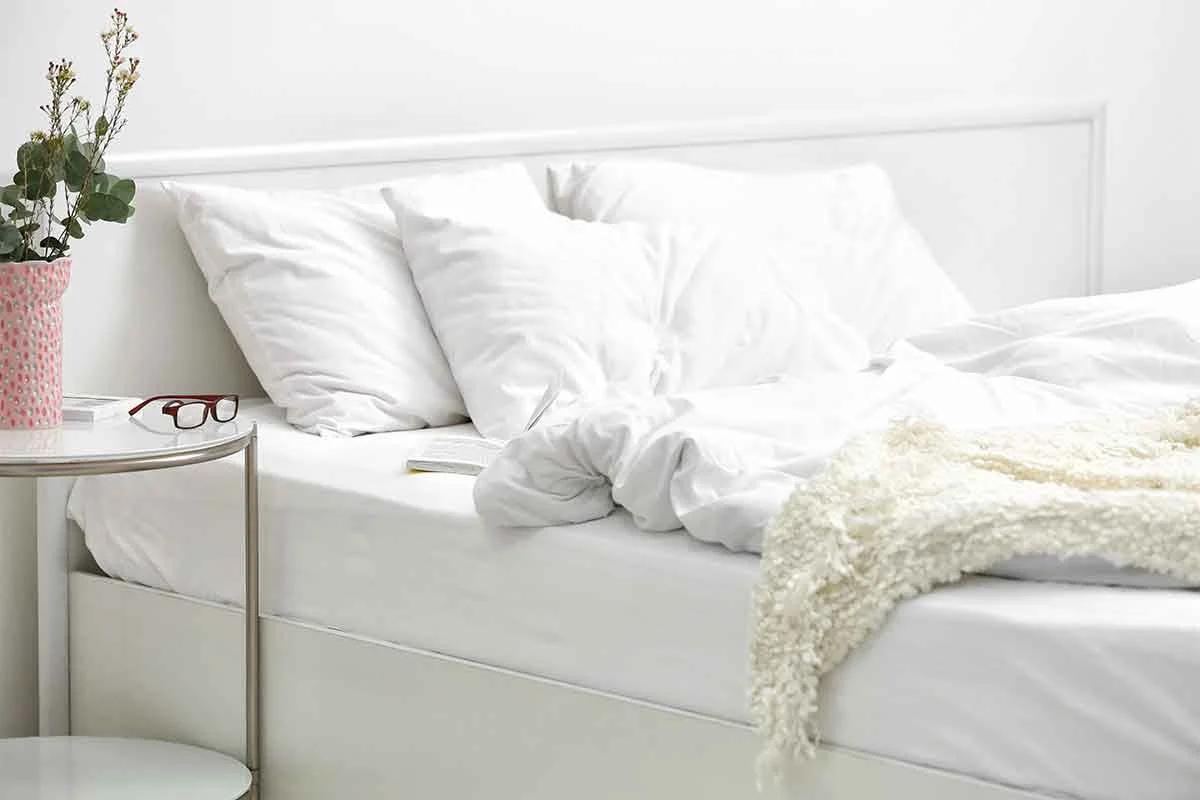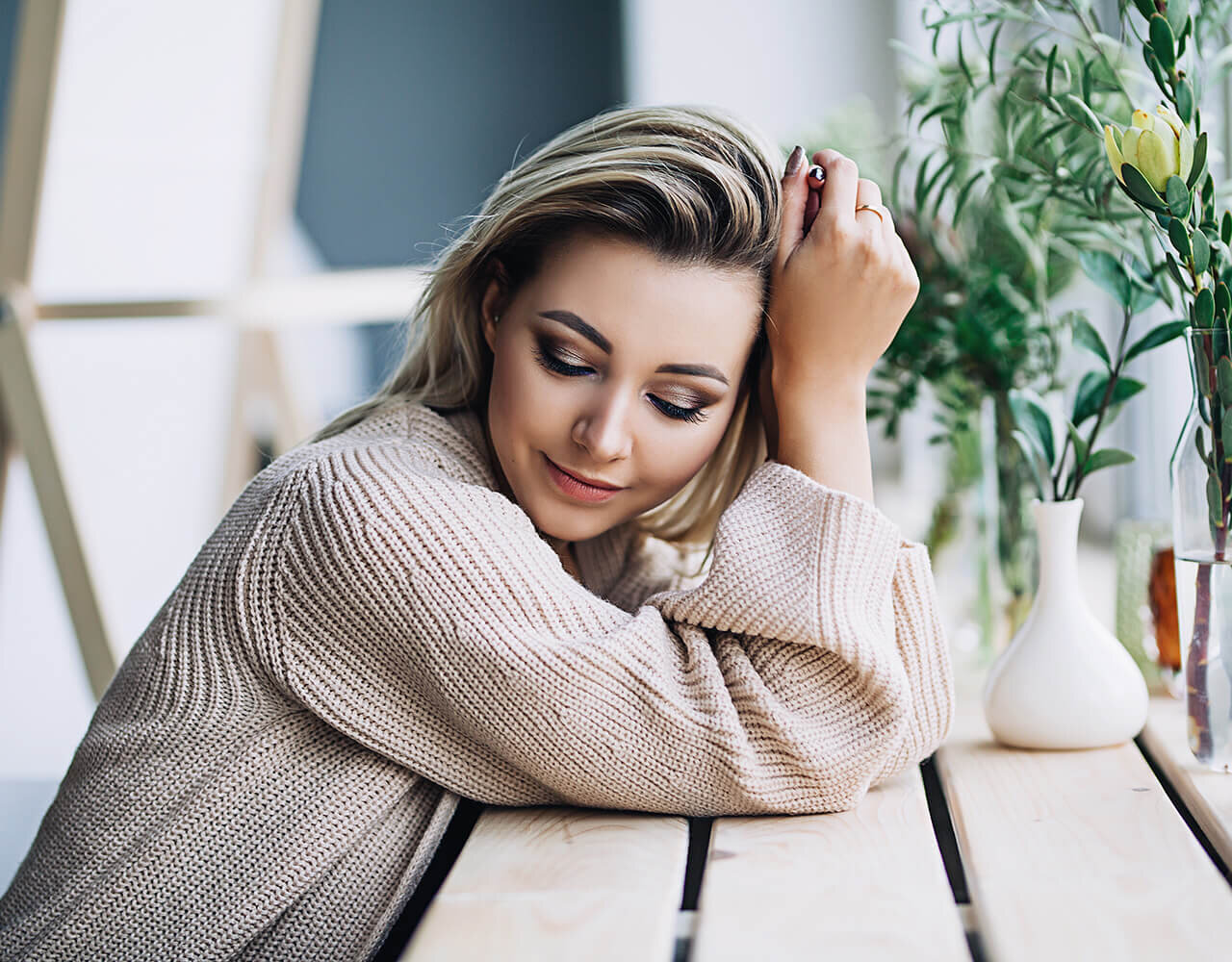Scents and Sleep
The Power Of Relaxing Scents For A Good Nights Sleep
Struggling to drift off at night? The right scents can make a big difference in helping you relax and achieve better sleep. From calming lavender to soothing chamomile, certain aromas have been shown to reduce stress and create a peaceful environment for rest.
In this guide, we’ll explore the best scents that help you sleep, how they work, and simple ways to incorporate them into your nighttime routine for a more restful and rejuvenating sleep experience.
Consider these tips for using relaxing scents to lull you into better sleep tonight.
History of Smelling
People have used scents to lull themselves to sleep for many thousands of years. In fact, in ancient Egypt, individuals who could afford it would burn scents like cinnamon, cypress, myrrh, and frankincense to help encourage a good night’s sleep - and to inspire more vivid dreams.
Later, ancient Romans used the scent of chamomile to help them sleep better, with the father of medicine, Hippocrates, a frequent advocate for the use of aromatherapy.
Aromatherapy sounds like a complicated concept, but in reality, it is simply the act of using scents for medicinal purposes. It can not only reduce fatigue but can also encourage deeper, more restorative sleep. There are all kidneys of scents that can help promote a better mood and sense of relaxation, leading to more restful sleep.
While the most common scents in aromatherapy consist of essential oils extracted from various plants (such as lavender, bergamot, and chamomile), some studies suggest that even something as simple as the smell of the person you love can help you get more restful sleep.
Aromatherapy can help you sleep better in a number of ways, working to promote restfulness and relaxation. There are all kinds of scents you can use - the choice is yours as to which one you ultimately select. Why not go with a combination?
Power of Scents For Sleep
Your sense of smell is as unique as you are. Your hormones impact how you process and perceive various smells, making them either “bad’ or “good” to your nose. Scents have been used for billions of years, incorporated in ceremonies, celebrations, and in everyday life.
Your nighttime routine can be influenced by scents just like every other part of your day can be. There are scents everywhere - you’ll find them walking down the aisle at the grocery store, strolling through your garden, or even sitting in your bedroom. Knowing which ones are the most powerful can help you get a better night’s sleep.
Smell and Sleep
There is a strong connection between your nose and your sleep quality! In fact, a study at the Sleep Disorders Centre of the University of Heidelberg revealed that, when participants were exposed to various smells (including the smell of flowers, a pleasant smell, the smell of hydrogen sulfide, an unpleasant smell) and no smell at all, the results were impressive. Participants reacted strongly to the smells, experiencing positive dreams when they were exposed to pleasant smells and negative dreams when they were exposed to bad smells.
The Perfect Combination: Smell and Sleep
Clearly, smells affect sleep, and it’s not just the chemical compounds in various scents that play such a huge role in our sleep quality. In fact, some studies have shown that even something as simple as the smell of coffee can help you sleep better. Researchers at UCLA believe that this is because coffee has a calming effect and one that we associate with positive vibes.
Scientists believe that the impact that smell has on the brain is one of the most vital functions of the human body. Your body’s ability to react to smell often had life-and-death importance for your ancestors. If you smell fire, you need to get away - if you smell rain, you need to seek out shelter.
Your cells that correspond to the sense of smell (those found in your nose) are connected to your limbic system, which is one of the oldest parts of the brain. It governs your long-term memory along with your behaviors and your emotions. Everything you do can be impacted by your sense of smell, including your daily actions to even how you choose to spend your money.
Scents
Clary Sage
Aromatherapy with scents and sleep
Clary sage is not quite the same as regular sage, but it’s incredibly beneficial when it comes to your overall sleep quality. It has antidepressant effects on menopausal women and its earthy scent provides a great alternative for people who want to fall asleep without having to use medicinal sleep aids.
Geranium
Native to southern Africa but commonly cultivated all over the world, geranium is a flowering plant whose value actually lies in its leaves. These leaves smell just like roses and can help relieve stress, making it much easier for you to fall asleep at night. Geranium, particularly when used alongside lavender, can help encourage better sleep and to cleanse the immune system to boost relaxation. Some scientists believe that it may also help cleanse the lymphatic system.
Rose
Different Types of Scents For Sleep
Rose oil is often used to treat emotional problems like grief, depression, stress, and tension, so it makes sense that the essential oil from the rose plant would be helpful at easing sleep-related problems, too. It can help relieve pain and relax the body, making it effective for all kinds of sleep issues.
Bergamot
Bergamot is a citrus plant - technically, it’s a type of orange tree that is found growing in Italy. Its essential oil, extracted from its peel, can help relieve even the worst cases of anxiety. Bergamot is used in many popular perfumes and fragrances and has a spicy floral quality that can reduce your body’s psychological response to stress, lower your blood pressure, and control cortisol levels for better sleep. It can even slow your heart rate.
Lavender
Find The Right Type Of Scent For Sleep
Lavender is one of the most widely researched fragrances when it comes to getting better sleep. In fact, numerous studies have confirmed that it has calming, sedative, and soothing effects. Native to the Mediterranean, this plant can calm you down and make it easier for you to breathe at night, too.
Lavender is one of the most commonly known sleep remedies and can ease both agitation and restlessness. It is often used to treat insomnia and to promote deeper, more restful sleep. It can lower your blood pressure and your heart rate, too.
Frankincense
Around ancient times, frankincense has a sweet, fruity, and somewhat earthy smell. In many studies, its aroma can help patients relax and enjoy more restful sleep. Uniquely, it can help open up your breathing passages and acclimate your body to an ideal sleep temperature, too.
Juniper
Juniper, a woody-smelling scent, can also help treat insomnia. One study found that patients who inhaled juniper were later able to cut down on using their sleep aid medication. It can treat a number of other problems in the body that can be related to poor sleep, too, such as fatigue, menstrual difficulties, and nervous exhaustion. It helps to promote a quick and more restful sleep on your new organic mattress, even if you suffer from insomnia.
Relaxing Comfort Scent for Sleep
Ylang Ylang
Ylang ylang is a flower with sweet oil that has been used to treat insomnia in Thailand for many years. However, more recent studies have proven the scientific validity of ylang-ylang as a sleep aid. It can relax your body, reduce hypertension, and even fight depression.
Vanilla
It’s not just for cookies and baking - vanilla can also help you get a better night’s sleep. Vanilla, particularly vanilla bean, decreases arousal and has a positive effect on your mood. It can serve as an antidepressant in many cases and will help create the ideal environment to help you fall - and stay - asleep.
Valerian Extract
Valerian Extract and Lavender are Staff Favorites for Sleep
Valerian extract can be used just like vanilla to help you get some better sleep. There are several studies suggesting that the mere smell of valerian extract can increase delta and theta activity in the brain, which controls the acts of deep sleep and drowsiness. Other studies with rats showed that the animals fell asleep faster - and stayed asleep longer - when they were allowed to sniff the extract.
Some scientists believe that valerian extract can also increase gamma-aminobutyric acid (GABA) in the brain, too - this is another chemical that can help promote more restful sleep.
Ravensara
Ravensara is another plant that can help improve sleep quality. It’s particularly effective if you suffer from nasal congestion or other allergy symptoms. This plant is also antifungal, antiviral, and antibacterial.
Lemon
Many people don’t associate lemon with a better night’s sleep, but the reality is that this fruit actually can be used to lower stress and anxiety levels, both of which can help you get a better night’s sleep. Lemon can be used in aromatherapy or ingested with water. However you choose to use it, lemon is a valuable tool as it can reduce stress and lower your blood pressure. For many people, it can even calm allergies, leading to a more restful night’s sleep, and reduce symptoms of insomnia in menopausal women.
Marjoram
Marjoram has powerful compounds that are shown to help with sleep. One of these is linalool, which helps to stabilize the cardiovascular system and makes you relax. Another is linalyl acetate, which encourages calm and can help improve your sleep quality when you aren’t on a regular sleep schedule.
Sandalwood
Sandalwood is often used in perfumes and other fragrances for its smooth, warm, and soft scent. It’s soothing, to say the least, but there are some studies that suggest that sandalwood can increase theta activity in the brain, helping you feel more drowsy and drift off into deep sleep with ease. It has also been shown to ease sleep disturbances when you are suffering from allergies or a cold.
Chamomile
Chamomile is an essential oil derived from a beautiful white flower - and it’s also a commonly used scent to boost relaxation and to help lull you to sleep. It is often used in products like lotions and perfumes, helping to create an overall calm that will make it easier for the day’s stressors to melt away.
Sleep Soundly With Essential Oil Scents
There are many kinds of chamomile you can use to harness the power of natural scents in sleep, but all should do the trick quite nicely. Some of the most common are those that are grown in Argentina, Europe, and North America.
Roman chamomile is one of the best, originally used to help the ancient Romans themselves drift off to sleep. It can encourage sleep and prevent insomnia and also improves your overall daytime functioning, reducing feelings of fatigue that you might experience during the day.
Jasmine
Last but not least is jasmine. Popular in many fragrances, jasmine has a unique chemical makeup that is similar to many pharmaceutical sleep aids. It can reduce anxiety and encourage better sleep, with many people using it as a substitute for Valium. Jasmine has sedative effects on your nervous activity and mood and can even help to reduce your heart rate.
Scents Really Can Make You Sleepy On Your New Organic Mattress
All of the scents mentioned above are not only safe to use, but they’re a viable alternative to commonly prescribed sleep aids. They’re easy to find and to use - all you have to do is pick up a bottle of the essential oils and use them in a diffuser. If you don’t want to go through the effort of using a diffuser, many can even just be sprayed on your pillow or sheets.
Some other options? Many of these scents can be used in your cooking or in teas. Some can be found in beauty products or extracts or even burned to help improve your sleep quality and reduce nighttime disruptions. You can even grow many of these, such as jasmine and lavender, as plants or dab the essential oils on your skin. Taking a bath with a few drops of essential oil or using fabric fresheners, candles, or air fresheners with these scents is another good way to expose your body to their sleep-restoring benefits.
Whichever you choose, make sure you do so. Scents really can make you sleepy - and can lead to a better night of sleep, too.
Lisa Czachowski is a professional social blogger and has worked on several online publications including Citrus Sleep. Lisa is an experienced content writer and copyeditor. You will find many of her works throughout CitrusSleep.com that cover a wide array of subjects including sustainability, natural, sleep products, health, fashion and many more. She is passionate about what providing as much information as possible on products you bring in your home and what we wear.
Follow Lisa at Lisa Czachowski






















